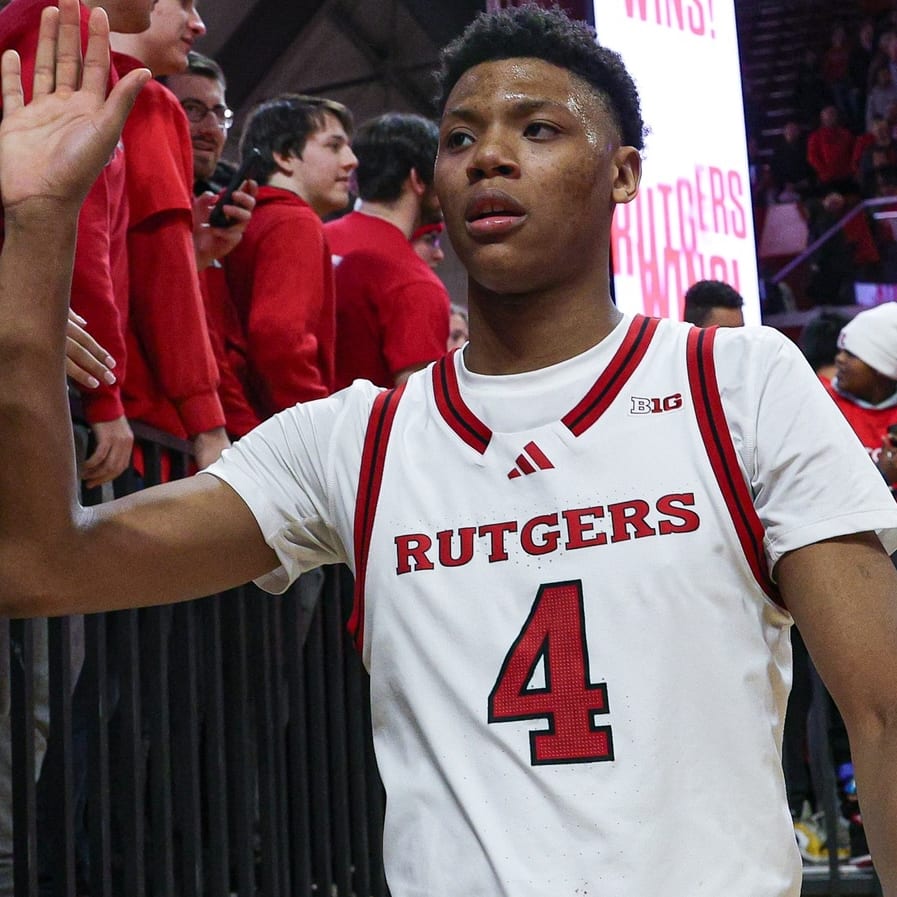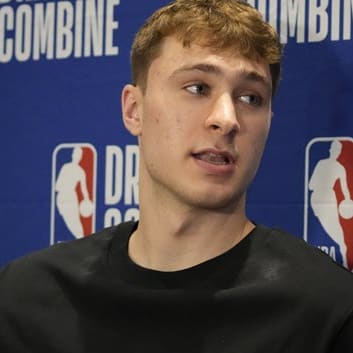This article is part of our Nerd Alert series.
The NBA trade deadline is mere days away. Although most of the NBA community will have its eyes around Dwight Howard and the other big names swirling around the wires, fantasy owners remain ever concerned with their rosters. Trades can have huge impacts on the fantasy value of some players, sending them to situations which can severely detract from one or more categories on a nightly basis. Here are a few situations you should try and avoid if possible:
Scorers: Avoid Orlando, Philadelphia, Boston
In order to score, a player has to get shots up first. These three teams run plodding paces which rank in the bottom four of the NBA in terms of possessions (and therefore shots) per game. A player traded from a league-average team to one of these three spots is likely to lose about 2.5% of his production down the stretch as each team uses about 91.5 possessions instead of the league's rate of 94 per game.
These pace effects tend to apply to every statistic, but it's more of a limiting factor with scoring, whereas a litany of factors go into assists, rebounding and defense, but number of shots will always limit scoring opportunities.
The most likely trade to involve these teams may involve Monta Ellis heading from Golden State to Orlando. Although the Warriors don't run the freewheeling pace of the Don Nelson era any more, the drop from Golden State's slightly above-average pace and the presence of Dwight Howard to take shots away
The NBA trade deadline is mere days away. Although most of the NBA community will have its eyes around Dwight Howard and the other big names swirling around the wires, fantasy owners remain ever concerned with their rosters. Trades can have huge impacts on the fantasy value of some players, sending them to situations which can severely detract from one or more categories on a nightly basis. Here are a few situations you should try and avoid if possible:
Scorers: Avoid Orlando, Philadelphia, Boston
In order to score, a player has to get shots up first. These three teams run plodding paces which rank in the bottom four of the NBA in terms of possessions (and therefore shots) per game. A player traded from a league-average team to one of these three spots is likely to lose about 2.5% of his production down the stretch as each team uses about 91.5 possessions instead of the league's rate of 94 per game.
These pace effects tend to apply to every statistic, but it's more of a limiting factor with scoring, whereas a litany of factors go into assists, rebounding and defense, but number of shots will always limit scoring opportunities.
The most likely trade to involve these teams may involve Monta Ellis heading from Golden State to Orlando. Although the Warriors don't run the freewheeling pace of the Don Nelson era any more, the drop from Golden State's slightly above-average pace and the presence of Dwight Howard to take shots away from Ellis would likely have a negative impact on Ellis's points per game total.
Distributors: Avoid Indiana
First of all, Indiana doesn't sound like it would be much of a trade destination for a point guard (or other heavy-assist type) with the presence of Darren Collison and George Hill. However, the Pacers have been linked to Bobcats guard and rare Charlotte warm body D.J. Augustin. Of all the courts with a low assist factor over the past two seasons, the Pacers look to be the only ones in the market for a point guard.
We've already seen Darren Collison's assist totals drop by one per game with a move from a relatively neutral court in New Orleans to Indiana. Charlotte's court has an assist factor of 98 -- roughly average -- compared the Pacers' mark of 89. That corresponds to about a 10% drop in assists, so don't be surprised if Augustin experiences a similar fall in assists upon a hypothetical move to Indiana.
Rebounders: Avoid Dwight Howard
Reports largely have Dwight Howard staying in Orlando past the trading deadline. However, the Magic won't make it a quiet deadline in Florida -- either the Magic will be in the market for talent to try to convince Superman to stay, or some team could swoop in with a major offer for the big man and try to spirit him away at the last second.
If that's the case, expect anybody who plays a rebound-heavy position -- most small forwards and all power forwards -- to absorb a major blow to their rebounding when played next to Howard. Four players with decent rebounding skills have played in lineups with Howard with regularity over the past two seasons: Ryan Anderson, Brandon Bass, Hedo Turkoglu and Glen Davis. Using NBA.com's StatCube, we can see how these players did with Howard both on and off the court. The results? Howard steals rebounds these guys are otherwise capable of grabbing.
| Player | Team Rebounds With Howard | Per 36 Min. | Team Rebounds Without Howard | Per 36 Min. | Change |
|---|---|---|---|---|---|
| Ryan Anderson | 26% | 8.7 | 31% | 9.7 | 1 |
| Brandon Bass | 23% | 7.1 | 28% | 8.7 | 1.6 |
| Hedo Turkoglu | 13% | 4.2 | 19% | 5.8 | 1.6 |
| Glen Davis | 22% | 6.8 | 29% | 8.8 | 2 |
| Average | 21% | 6.7 | 27% | 8.25 | 1.55 |
On average, these four players have grabbed an extra 1.6 rebounds per 36 minutes without Howard on the court to collect misses. Howard is so big and can get such good position that his teammates are able to spread back for longer defensive rebounds, and Howard is so long that even if a teammate is in position, he may be able to just reach over and grab it from over them. Expect this trend to continue with the next big man to play next to Howard full time.
On average, these four players have grabbed an extra 1.6 rebounds per 36 minutes without Howard on the court to collect misses. Howard is so big and can get such good position that his teammates are able to spread back for longer defensive rebounds, and Howard is so long that even if a teammate is in position, he may be able to just reach over and grab it from over them. Expect this trend to continue with the next big man to play next to Howard full time.










